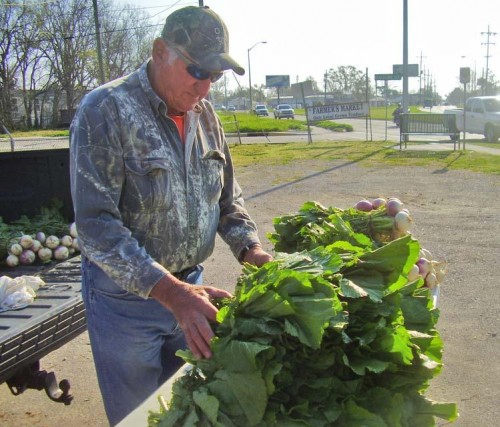
Cajun Farmers Market asset to Houma’s economy; city looking to expand to downtown
March 30, 2010April 4: Horseshow (Houma)
April 1, 2010When it comes to scary information about energy, we’d thought we’d heard it all. But the Natural Resources Defense Council came up with a new one recently: oil shock.
The council fashioned its new take by combining information that has caused alarm in other, separate contexts. One is that many experts expect gasoline to hit $3 a gallon before long. The other is that the national recession has swelled the numbers and worsened the plight of the impoverished, particularly the working poor. The result is an analysis that ranks the states according to the percentage of the average household income that goes to pay for gasoline.
Louisiana ranks third from the bottom. The council’s report says that in 2009, Louisiana drivers spent about $1,908 a year, or 5.3 percent of their income, on gasoline. Only Mississippi (6.2 percent) and Montana (5.9 percent) spent a higher percentage on gas.
And, the report says, if the next year brings another spike in gasoline prices, the same three states would be at the bottom and spending nearly twice as much of their income on gasoline.
The Naturall Resources Defense Council makes a good point here: Higher retail energy prices represent a regressive fixed cost for low-income people and, to make matters worse, might depress overall economic activity. Being a generally liberal, environmentally conscious organization, the council suggests that we reduce our dependence on foreign oil by pushing for alternative and green energy sources, retool federal policy to incentivize mass transit, and while we’re at it, protect the Earth by controlling carbon emissions.
We’d emphasize a different approach. There are two parts to the oil shock equation. One is energy availability. The push for cleaner domestic sources is laudable, but that’s not going to help the low-income Louisiana residents pay for gas for years, maybe decades. Carbon controls might be good on their own merits, but they’re not going to make gasoline cheaper.
The other side of the equation is income. We’d note that three of the council’s five most vulnerable states – Oklahoma along with Louisiana and Montana – are energy producers. The impact of energy industry misfortunes is illustrated by what has happened in Lafayette and St. Martin parishes recently. In August 2007, 15,500 people from those parishes worked at jobs that the U.S. Bureau of Labor Statistics classifies as being in the mining support sector. That includes most of our oilfield service jobs. By January 2010, that number had fallen by 3,300.
We think that as we grapple with climate change and improve battery and hydrogen-power technology, we should push for the greater use of natural gas for power plants, vehicle fleets and mass transit. Natural gas emits less carbon and is available in abundance here at home. Instead of pitting the energy-producing states against energy-consuming states, this bridge strategy would benefit everyone.
– The Daily Advertiser, Lafayette, La.





